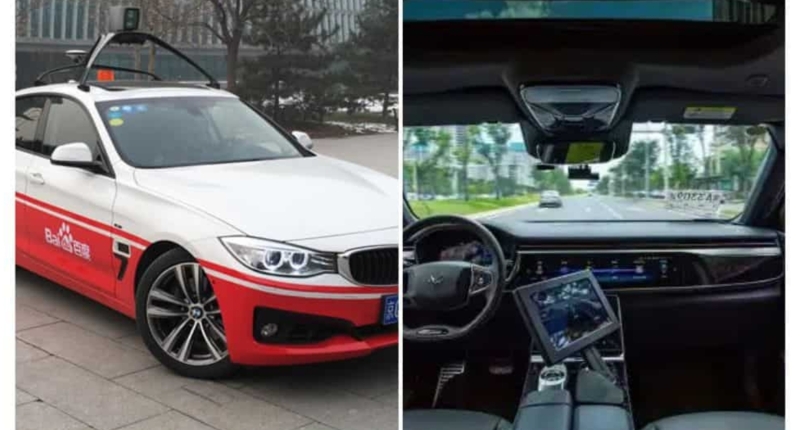Israeli startup company AIR ONE has completed its first unmanned cruise flight of an electric vertical takeoff and landing (eVTOL) aircraft. The company plans to sell the first batch of flying cars to the general public by the end of 2024, having already received an airworthiness certificate from Israel’s Civil Aviation Authority. The company’s successful test flight comes as Tesla develops bots and humanoid robots to reduce the need for human labour. Meanwhile, in China, Baidu has launched self-driving robot taxis that do not require a human driver or staff, rivalling companies such as Google’s Waymo and GM’s Cruise. Concerns about robots replacing humans in factories continue worldwide.
Baidu launches driverless robot taxis in China, rivalling Google’s Waymo and GM’s Cruise
Baidu, China’s biggest search engine, has begun operating robot taxis without human drivers or staff in certain Chinese cities. The company has announced that it has already started providing rides in its self-driving taxis, which reduce labour costs and eliminate the need for human labour in operating costs.
The Chinese government has approved the use of ten autonomous vehicles in the Yizhuang area of Beijing, which is home to a number of businesses, including JD.com. Baidu’s robot taxi operation in Yizhuang is reportedly the largest public testing site for autonomous vehicles in Beijing.
In November 2021, the local government allowed Baidu and other taxi companies, such as Pony.ai, to charge passengers for their rides. Commuters can book subsidised robot taxi rides through the companies’ apps.
Baidu claims that its self-driving taxis in major Chinese cities complete an average of over 15 rides per vehicle each day, a figure that is almost comparable to that of traditional ride-hailing services. The company stated in August 2022 that it had received approval to operate driverless and staff-less robot taxis in localities in major cities such as Wuhan and Chongqing.
The launch of Baidu’s autonomous taxis comes after the introduction of similar services in the United States by companies such as Waymo, Alphabet’s self-driving car division, and GM’s Cruise. These firms have been operating public robot taxi services in the US without human drivers or staff for some time. However, the regulations governing the testing and charging of riders for autonomous taxis differ from state to state and city to city.
Baidu’s announcement has led to a 15% surge in the company’s shares during trading on the Hong Kong stock exchange on March 17, 2023. The firm’s stock had fallen to eight-week lows on March 16, 2023, following the launch of its Chinese-language chatbot, Ernie, which is seen as a competitor to OpenAI’s ChatGPT. The company’s CEO, Robin Li, acknowledged that there was room for improvement with Ernie, highlighting the need to improve the product.
Israeli startup AIR ONE completes unmanned flight of its eVTOL
Israeli company AIR ONE has conducted the first unmanned cruise flight of its electric vertical takeoff and landing (eVTOL) aircraft. According to Legit.ng, AIR ONE aims to sell the first batch of flying cars to the public by the end of 2024. The company received an airworthiness certificate from Israel’s Civil Aviation Authority after conducting the test flight.
Don’t miss interesting posts on Famousbio









